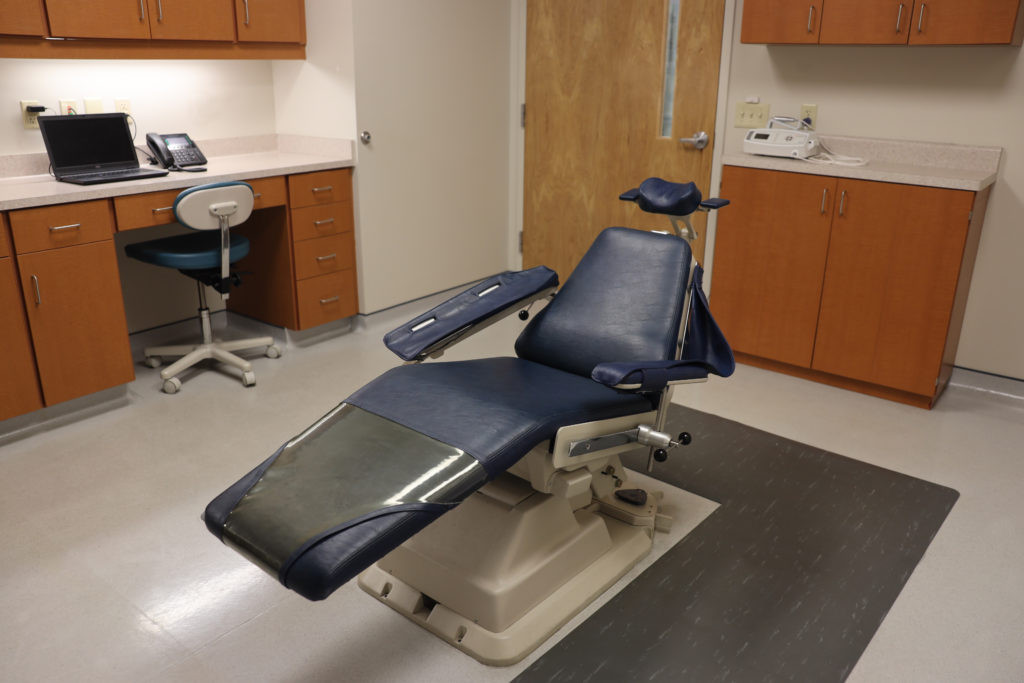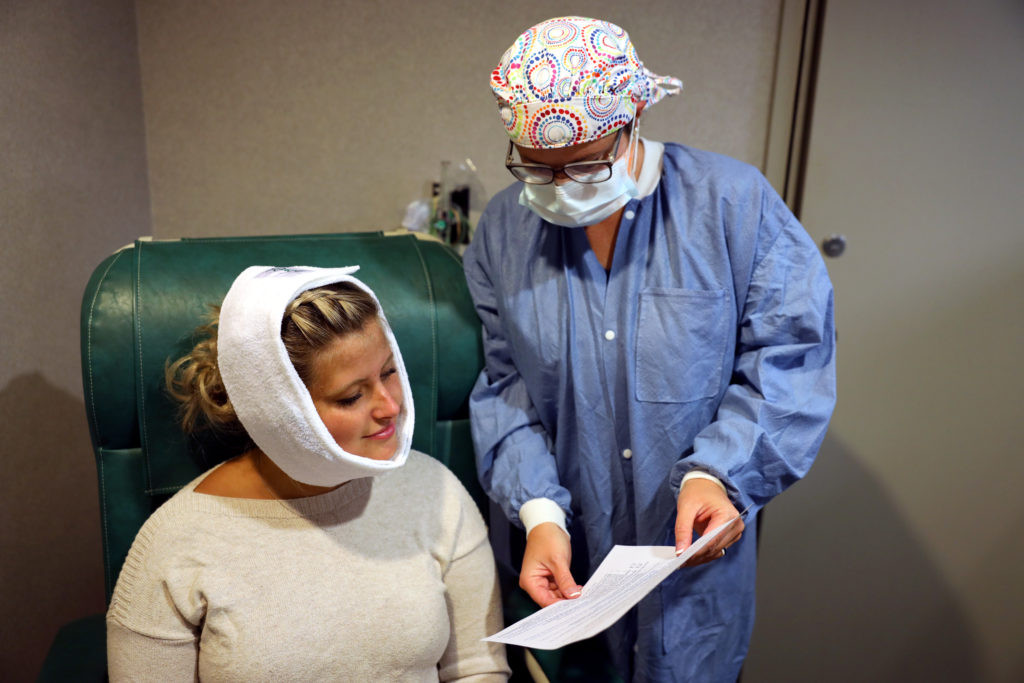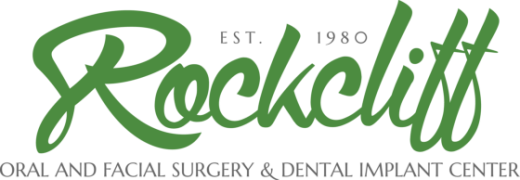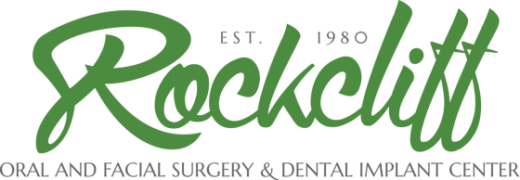What anesthesia options are available?
All surgery is performed under appropriate anesthesia to maximize your comfort. The method of anesthesia is determined by the nature of the procedure and your level of apprehension. Anesthesia options, as well as any potential risks, will be discussed with you prior to your procedure.
Our typical anesthesia techniques are described below:
Local anesthesia (Regional anesthesia)
- This involves an injection of a medication into your mouth to produce numbness in the area of surgery. Many patients have experienced this technique with their general dentist.
- Additional medications may be necessary to control anxiety.
- Nitrous oxide. Nitrous oxide is a sweet-smelling gas that when inhaled can help you feel relaxed. It reduces anxiety without going to sleep, allowing you to drive following the procedure.
- Oral sedatives. Medications can be prescribed that will help you feel relaxed during your surgery. Patients are typically awake but drowsy. A ride home will be necessary with any sedatives.
Intravenous Sedation
- Medications are given directly into a vein that will put you to sleep during your surgery. Prior to the procedure, an intravenous catheter through which sedation medications will be given is placed into your arm or hand. This minimizes the number of shots you receive.
- Sedation can allow you to be asleep during your procedure. You do not typically remember anything about the procedure being performed. Some patients with certain medical conditions may only be lightly sedated. This particular technique helps you feel calm and relaxed but not completely asleep. The level of sedation necessary for your comfort will be discussed by you and your doctor prior to the day of surgery.
- All sedation takes place in a safe environment that utilizes modern anesthesia monitoring equipment and a staff experienced in anesthesia techniques.
General Anesthesia at a Hospital or Surgery Center
- Some people are best managed in a hospital or surgery center. This may be due to the complexity of the surgery, health of the patient, or in cases of severe anxiety, emotional immaturity, or developmental delay.
- Our surgeons operate out of Mission Hospital and the Asheville Surgery Center. Most patients undergoing routine oral surgery can go home the same day.
Who provides anesthesia during my procedure?
Oral and maxillofacial surgeons are extensively trained in all forms of anesthesia administration. Our doctors are experienced in the delivery of sedation, as well as regional anesthesia of the head and neck. We also employ the services of a board-certified anesthesiologist or nurse anesthetists when necessary for more complex or lengthy procedures.

Where will my sedation occur?
Most routine oral surgery procedures are performed in a private surgical suite at one of our four office locations. This comfortable, personalized setting allows for safe and efficient treatment while reducing the overall cost of your care. Our surgical suites are furnished with the latest anesthesia monitoring equipment, allowing for delivery of intravenous and regional anesthesia.
Large or more complex surgeries take place at Mission Hospital or the Asheville Surgery Center.
How should I prepare for my sedation?
Can I eat or drink prior to surgery?
Any patient undergoing oral or intravenous sedation cannot eat or drink anything for 8 hours prior to surgery. This is to avoid food from your stomach getting into your lungs after you are asleep which could lead to serious complications.
Do I need to stop my medications?
Some medications can interact with sedation medications or increase your risk of bleeding. Your doctor will tell you if you need to stop any of your medications prior to surgery. Otherwise, you may take any necessary medications with a small sip of water prior to your sedation.
What if I catch a cold or become sick prior to surgery?
We want you to be safe. Respiratory infections can increase your risk when being put to sleep. The physiological effects of the infection can linger in the lungs much longer than the symptoms are felt. Some infections that cause a sore throat can get into your wound and lead to life-threatening surgical site infections.
If you have a respiratory infection or a sore throat prior to surgery, please call our office. We will discuss your symptoms and determine if surgery should be rescheduled.
Do I need someone to take me home?
Patients who undergo sedation should not drive or operate heavy machinery for 24 hours after surgery. Plan to have someone available the day of surgery to take you to our office, stay in the building during your procedure, and take you home afterwards. This person will also need to help you get any necessary medications from the pharmacy and make sure you get home safely.
Patients may not take a taxi or ridesharing service home after sedation without an escort present.

What should I expect after sedation?
After your procedure you will be carefully monitored until fully awake and ready to go home. Initial recovery will occur in the surgery suite. Once able, you will be transferred to our recovery unit where you will rest comfortably. Your doctor will discuss the surgery and any necessary instructions with you and your escort. By the time you leave our office, you should expect to be feel awake but groggy.







